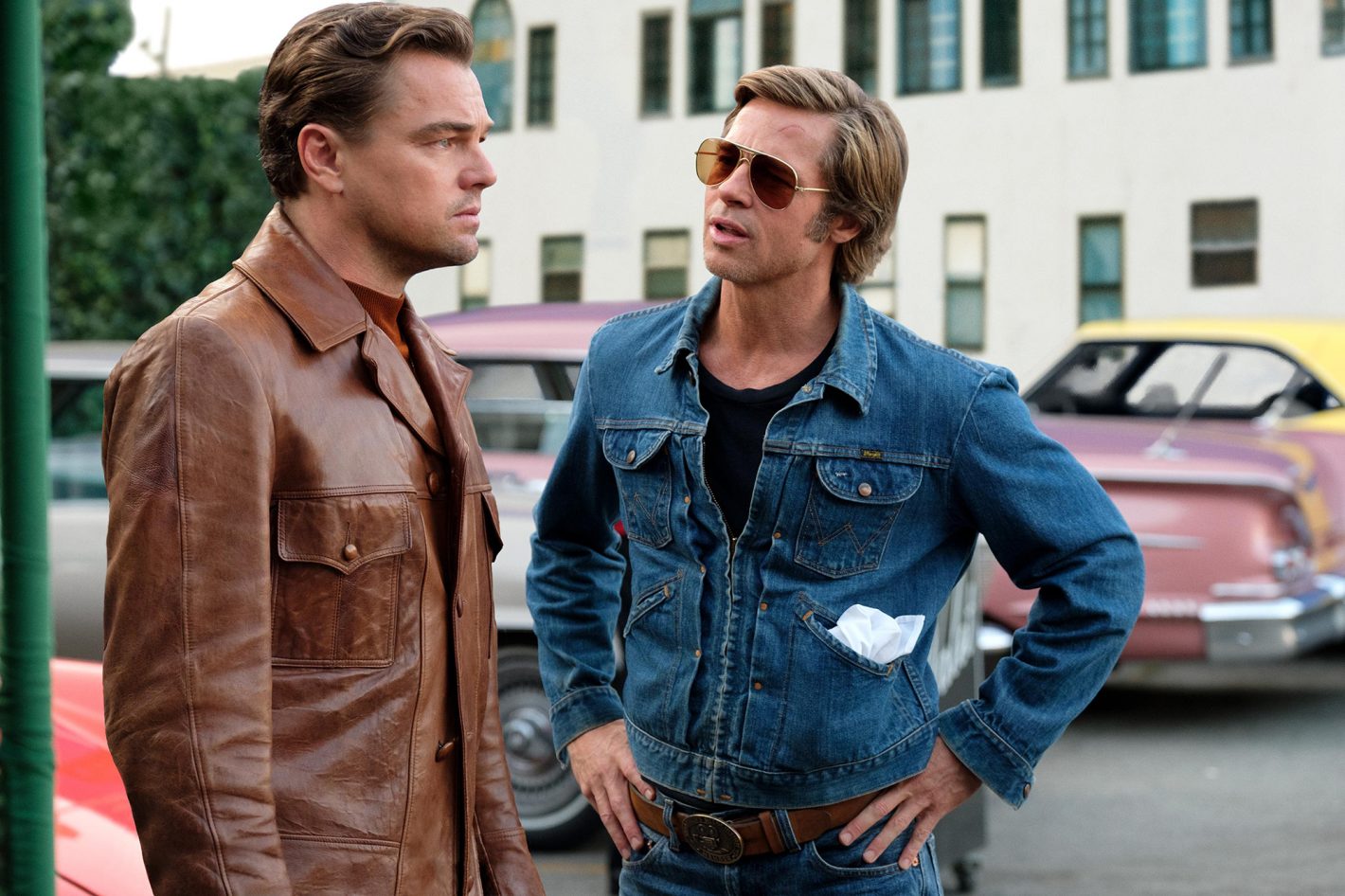
Seemingly everyone has a favorite Quentin Tarantino movie, as well as a least favorite. This is to say that he’s an oft-polarizing filmmaker. When he’s good, he’s great— easily one of the most influential, masterful and readily identifiable directors of the post-Golden Age era. And when Q.T.’s not so good? Well, words and phrases like egomaniacal, pompous and belligerently artful come to mind. Which is to say we think he stinks! But the introductory paragraph of this review is not the time or place to debate the specifics of our love-hate relationship with Tarantino’s filmography, as we’ll find ourselves absorbed in a rambling diatribe, surely losing track of the task at hand.
Once Upon a Time in Hollywood is the story of western tough guy Rick Dalton (Leonardo DiCaprio) and his longtime stuntman/bestie, Cliff Booth (Brad Pitt). Set in 1969, Dalton finds himself navigating the changing landscape of an industry and community in stylistic and cultural flux. With his tough guy TV hit Bounty Law in the rearview, and the market dictating serial one-offs as a stereotyped heavy, Dalton is faced with the depressing realities of a fading star. In turn, Cliff’s stunt work has all but vanished entirely, leaving him as a glorified personal assistant, driving Dalton to and fro from backlot to backlot in a Cadillac Coupe.
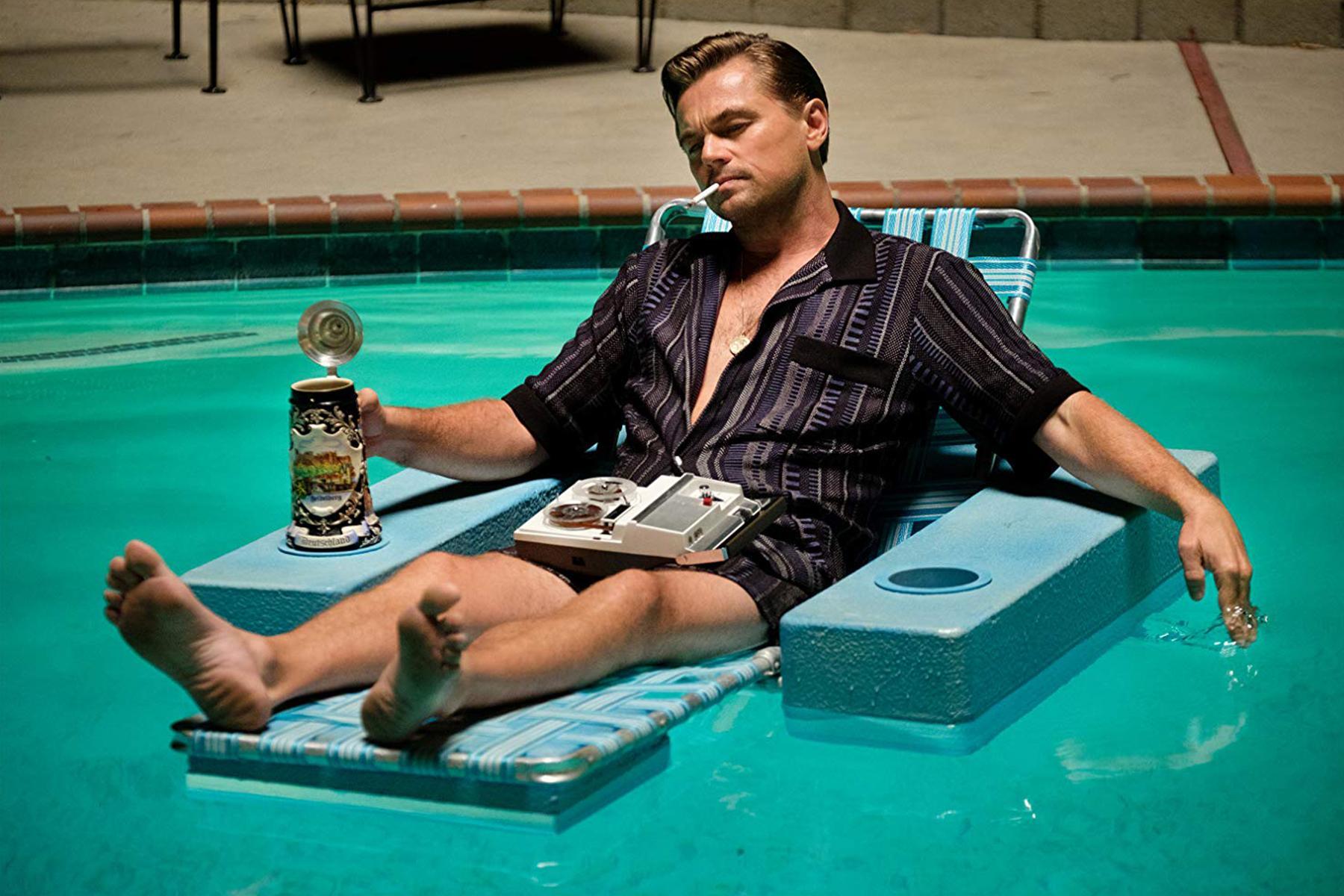
Concurrently, in a parallel narrative, Dalton’s next-door neighbor/budding starlet Sharon Tate (Margot Robbie) acclimatizes to her new locale in the Hills, zipping around Los Angeles in sportscars and splendor, generally loving and living life to the fullest (be it with husband Roman Polanski or her ex, Jay Sebring). All the while, an irrelevant cult called the Manson Family bubbles up from the Spahn Movie Ranch and onto the Hollywood strip.
If you’ve seen enough Tarantino flicks (and really, there’s only nine!), it’s immediately apparent that Once Upon a Time… is on a slightly different trip than his recent fare. There’s actual sentiment and character depth here, and it all stems from the script. Where Hateful 8, for example, languishes in gaudy, interminable soliloquies and quixotic prose, Once Upon a Time… seems to make a point of presenting dialogue that’s not only evenly paced and relatable, but heartfelt. The concepts of aging and friendship, and the many varied trials that come with them are not exclusive to the silver screen elite, which DiCaprio’s performance will attest to. As someone who happens to identify as a bonafide Leo skeptic (that is, I don’t automatically bow to his implied thespian greatness), I can say that he nails the role of Rick Dalton, from the realistic conversational stutter he didn’t have to give him, to the self-loathing but convivial alcoholism that consumes him day and night.
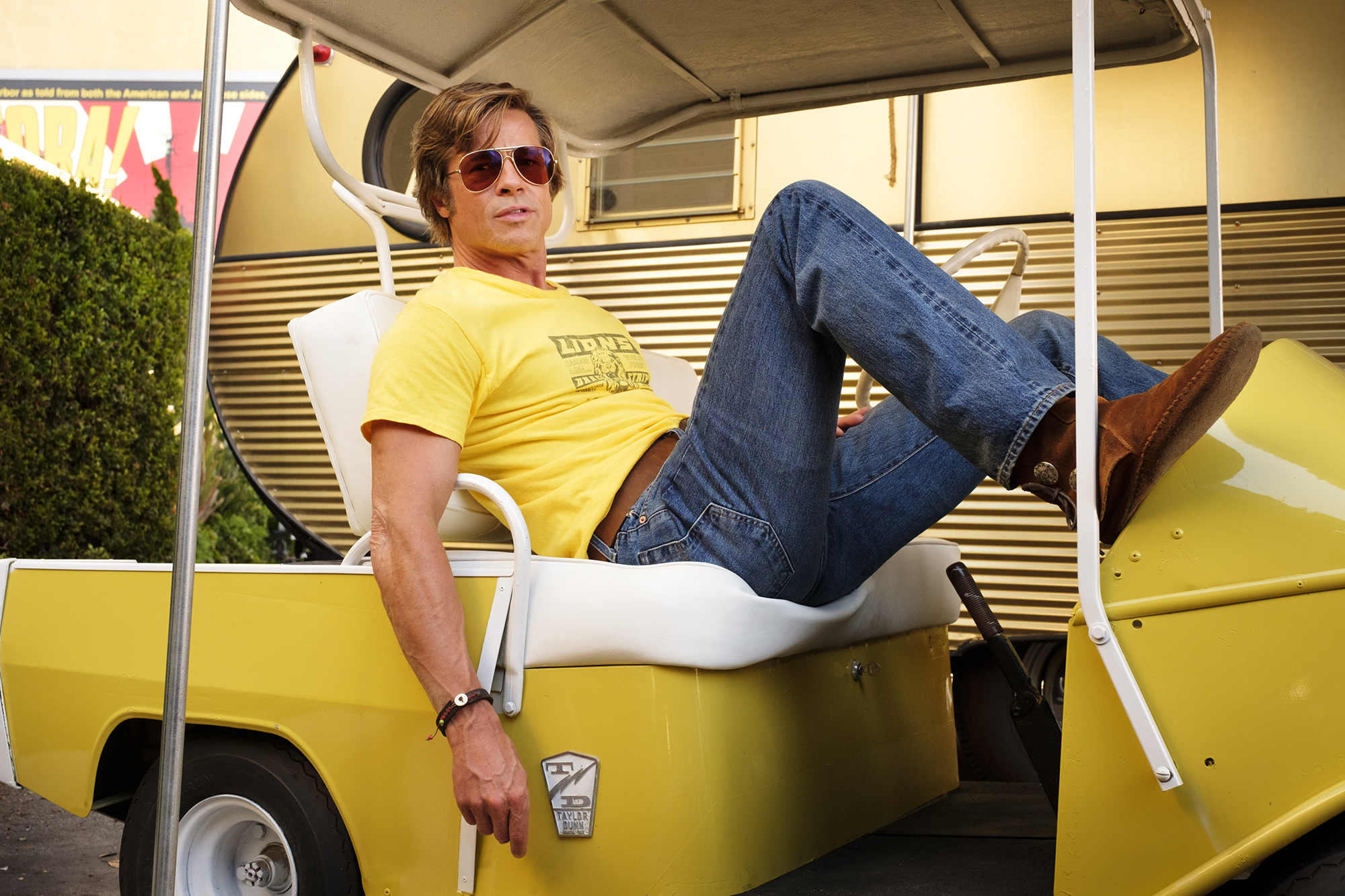
That goes double for Pitt, Robbie and the throng of familiar faces, old and new, that crop up throughout the 161-minute runtime. Far too often will a Tarantino flick force a big name into a cameo role, leaving it to feel as just that: a cameo. Interestingly enough, one of the central themes for Rick Dalton is to breakaway from people pigeonholing him as Jake Cahill, washed-out star of Bounty Law; he yearns to be seen as an actor, not a namesake. To Tarantino’s immense credit, he achieves this in Once Upon a Time… with an ostentatious and well-heeled cast.
Performances aside, Tarantino has never made a more visually beautiful film from the standpoint of cinematography. Simply put: Once Upon a Time in Hollywood is drop-dead gorgeous, start to finish. The backdrop of 1969 Hollywood is a wet dream come true for Q.T., whose obsession with kitsch from the era is renown, and plays perfectly into his directorial compulsion to curate every last detail on set. (The archetype for this, perhaps, coming early when Sharon Tate attends a dance party set at the Playboy Mansion.) Nothing is out of place for even a single moment, as the combination of wardrobe, hair, neon signage and hilly terrain will transport you to a time and place far, far removed from the miserable choke of present day Los Angeles. Factor in a resplendent and abundant dose of vintage radio and television from the era, and you’ll never come closer to our idyllic and romanticized notion of what it meant to “be there.”
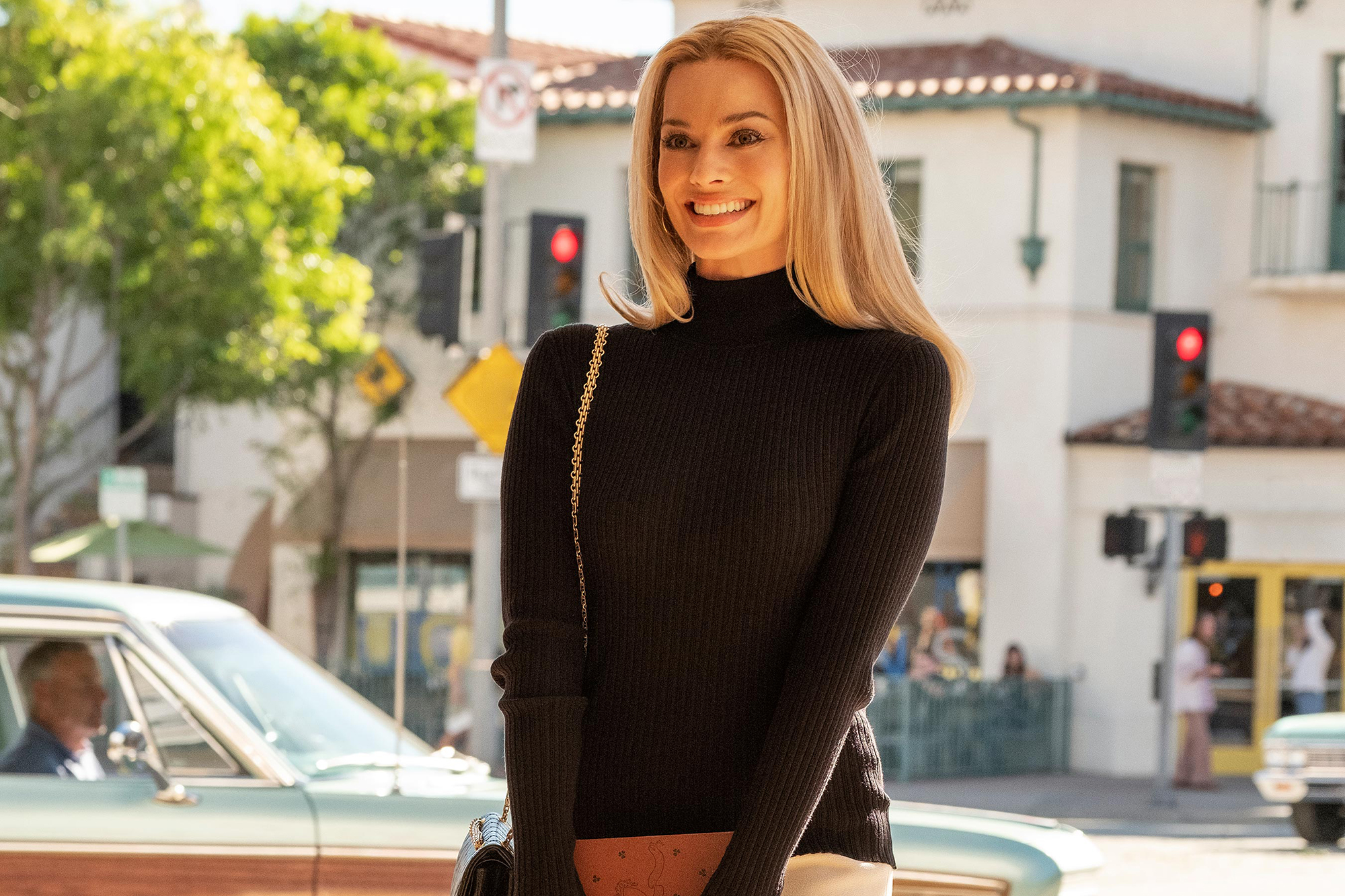
So is Once Upon a Time in Hollywood a “return to form?” That depends entirely on how you’ve felt about Tarantino’s recent work, which, as discussed prior, seems to differ person-to-person. All I know is that I loved every last goddamn second of it. And while I’d love to discuss/spoil what is unquestionably my favorite ending to any Tarantino film, I won’t! Just go see it, and know that you’re in for a treat.
{5 out of 5 stars}
**This review first appeared in print on page 9 of issue #297 (July 31 – Aug. 14, 2019)**

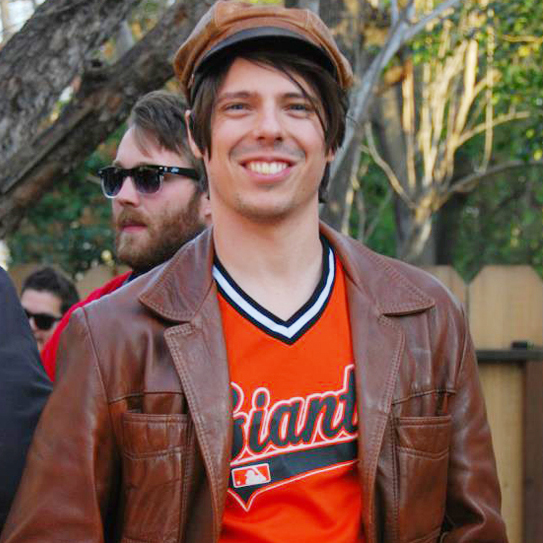
Comments